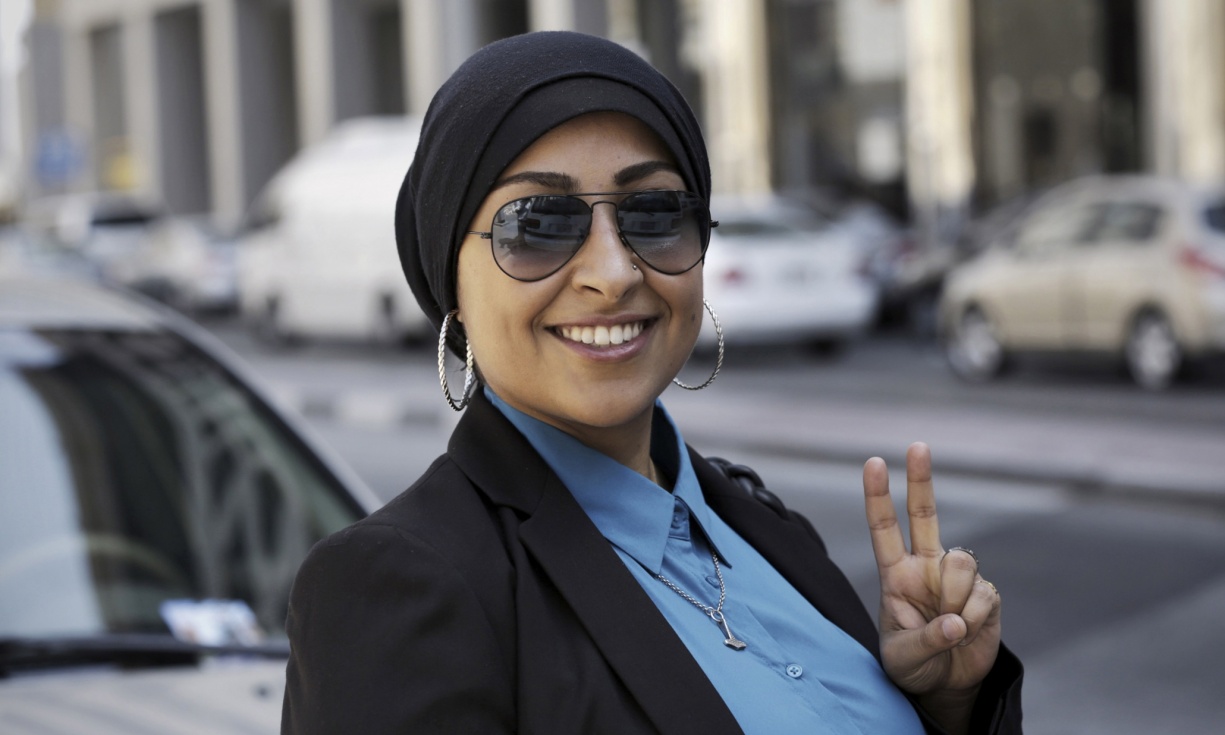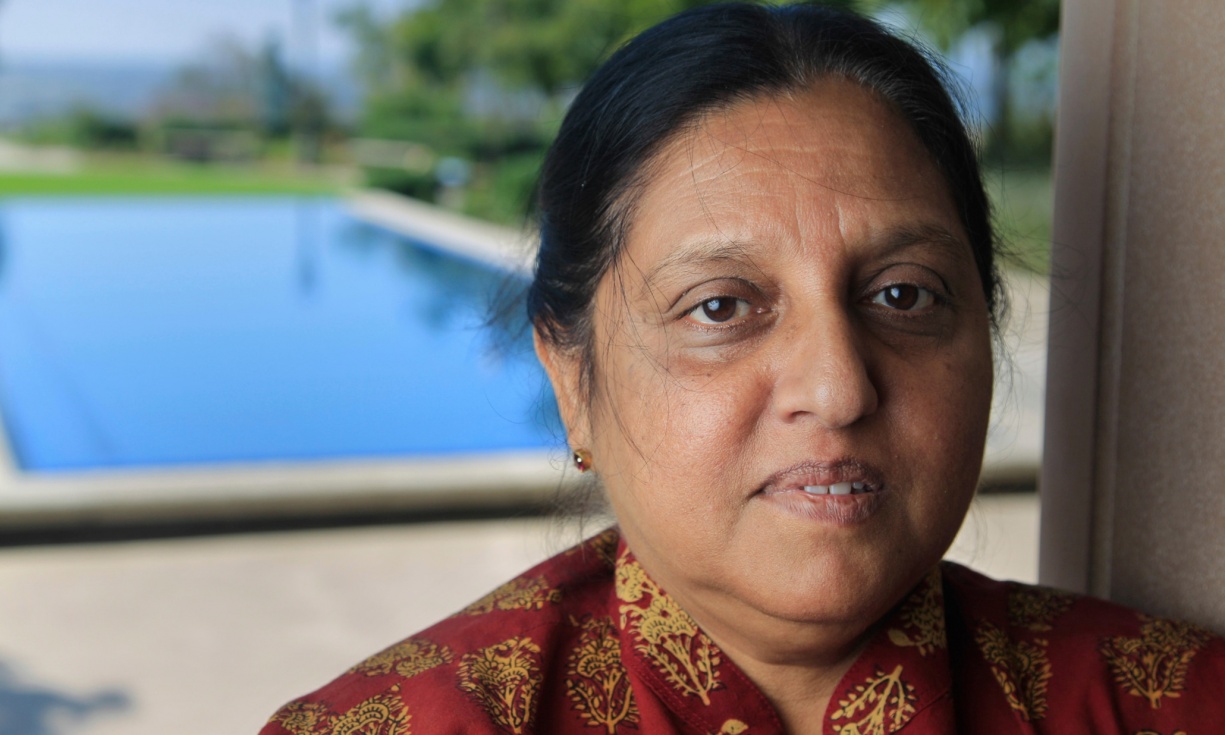Human Rights of Women
Source: The Guardian
Nimalka Fernando was called a sex worker and a traitor for campaigning for peace in war-torn Sri Lanka. A photo of her head was pasted on to a naked women’s body and published. People were encouraged to stone or kill her.
Sara García was threatened with criminal charges when she campaigned on behalf of women imprisoned under El Salvador’s draconian abortion laws.
And Maryam al-Khawaja was arrested, assaulted and imprisoned for three weeks when she attempted to visit her political activist father in prison in Bahrain last year.

Bahraini activist Maryam al-Khawaja, pictured outside the Bahrain court building, was assaulted and imprisoned for three weeks when she tried to visit her political activist father in prison in 2014. Photograph: AFP/Getty Images
At an event on Monday, hosted at this year’s Commission on the Status of Women, in New York, the three women called on the UN secretary general, Ban Ki-moon, to show leadership on defending the rights of female activists, and on member states to act on the resolution passed in 2013 to ensure they are protected in their work.
The women spoke of the sexual and misogynist nature of the attacks on them when they defended women and spoke out against their governments.

Nimalka Fernando, president of the International Movement Against All Forms of Discrimination and Racism. Photograph: Eduardo Contreras/Alamy
Fernando, president of the International Movement Against All Forms of Discrimination and Racism, said attacks against her were “very nasty and sexist”. The media began a smear campaign against her in 2012 and death threats followed.
“I was called a traitor to the motherland as I wanted peace,” said Fernando. “Then I became a collaborator and a prostitute because we were calling for peace and coming to the UN to raise accountability for humanitarian violations. We were portrayed as women selling the country and selling our bodies.”
García, from the Agrupación Ciudadana por la Despenalización del Aborto (Citizen Group for the Decriminalisation of Abortion), was also on the receiving end of a media campaign by conservative groups that threatened criminal charges against her and the organisation working to free women imprisoned on abortion-related charges in El Salvador. “They said we were condoning crime. The abortion law says it’s illegal to facilitate women having an abortion, but it doesn’t explain what that means – so they say that even talking about abortion and wanting to change the law is illegal,” said García.
Khawaja, co-director of the Gulf Centre for Human Rights, told the meeting that one of the only areas in which the Bahrain government doesn’t discriminate against women is in its treatment of human rights activists. Both women and men experience abuse. She said that if a woman is imprisoned, her child will often be forced to go to jail with her.
“Where women are already being targeted on political grounds and babies are having to suffer the consequences is something that has to be brought up and addressed by the UN,” said Khawaja, who is now in exile and was sentenced in absentia to a year in prison after visiting her father last year.
he added that the cause of women in Bahrain is not helped when Ban praises the government’s efforts to empower women.
“Women continue to be imprisoned in countries that work closely with the UN and are active members of the Human Rights Council,” Khawaja said, adding that while the passing of the resolution 2013 was a good first step, if not implemented, “they [governments] are just paying lip service”.
A report published last year by the Association for Women’s Rights in Development (Awid), Our Right to Safety: Women Human Rights Defenders’ Holistic Approach to Protection, said female activists are targeted for who they are – women – as well as what they do. It added that human rights defenders “working in contexts where religious and cultural fundamentalisms are present are at greater risk of attacks than their male counterparts because they are deemed to have transgressed social norms”.
It also said: “Violence against WHRD [women human rights defenders] may be gendered or sexualised as a way to recast women back into their traditional roles.”
The 2013 resolution, the first to specifically protect women’s rights defenders, was introduced by Norway and co-sponsored by 35 other countries. The resolution recognises the specific risks, discrimination and violence women face in their work as activists. It called for governments to introduce policies to protect female activists, and to bring perpetrators to justice.
However, Awid noted that there was strong resistance to the wording in the resolution from more conservative governments in Africa, Asia and the Middle East, which did not want to acknowledge that violence against activists was linked to gender or their work to protect women’s rights.
